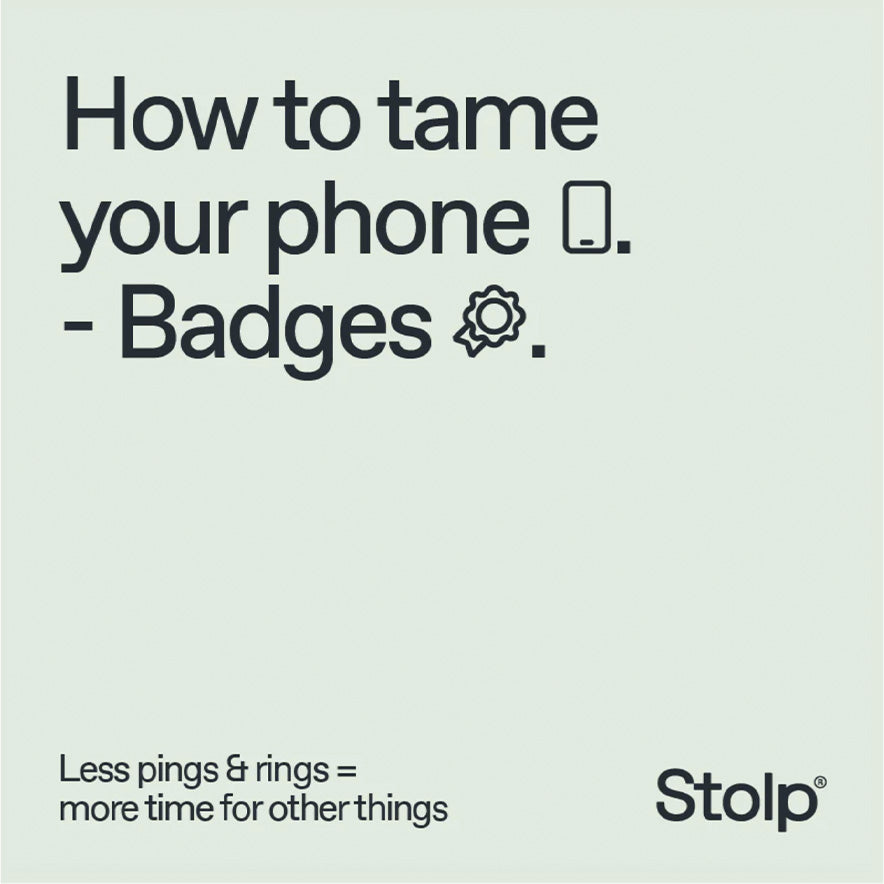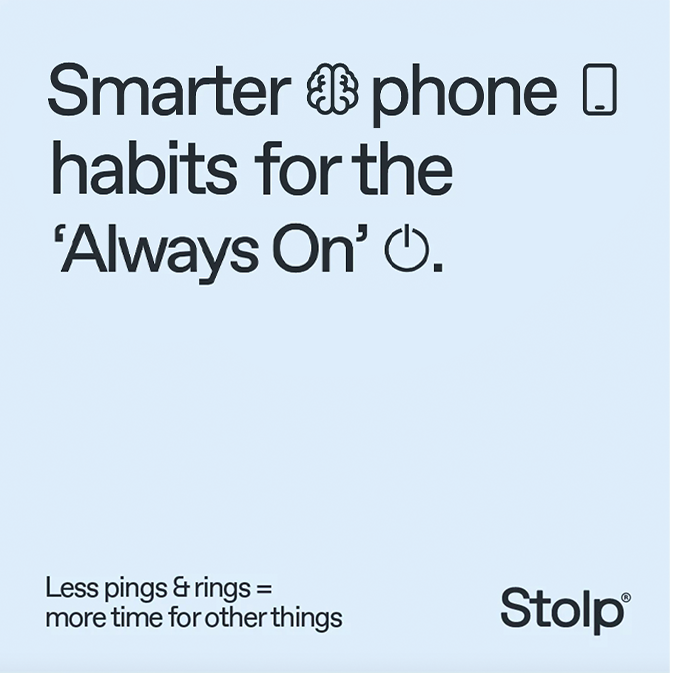
Date
Author
Teenage phone addiction is a problem. From causing distractions in the classroom to interrupting family dinner time, smartphones cause endless disruptions throughout the day. And the results aren’t great.
Cell phone overuse has been linked to increased mental health issues, poor sleep and loneliness. And that’s without considering the time wasted that could be spent studying or socialising.
But unlike the generations beforehand, our teens have grown up with this piece of technology in their hands from day one. Most were given a game to play as a toddler for a few minutes of peace, took family selfies and video called relatives before eventually being allowed their own device. It feels natural; a safety blanket. Like an extension of their being that they’d feel lost without. Many adults now hold this connection too despite not experiencing this same upbringing, which confirms how easy it is to become addicted.
So what can parents do? When your young adult is spending more time on their phone than with their family, is missing out on friendships or falling behind in their grades, how can you put a stop to teenage phone addiction?
Here we look at why teens are so often addicted to their phone and the signs to look out for. Plus a few effective things you can do to help your teenager deal with screen addiction.

Youth screen addiction - what does it mean?
A lot of our daily lives centre around our phones. We message friends, check emails, read the news, take photos, share photos and use countless apps for business and pleasure. And for teenagers, the intensity of use is worse.
A recent study found that 50% of teens admit to feeling addicted to their phones, with 78% checking their notifications at least every hour. Today’s youth are programmed to use technology (and therefore their phone) for every element of their day. It’s where much of their socialisation takes place whether with friends they have in person or online. They also often use it to manage their calendars, activities and schoolwork. But significantly is the endless, instant access to entertainment, realtime updates and validation with every click and swipe.
But what takes a habit from overuse to addiction is not the time spent on the device; instead it’s the instinctual behaviour and lack of control that many teenagers experience.
Smartphones are designed to keep you engaged. Constant notifications appear almost every few minutes, which in turn creates an automatic reaction to check for them. They also act as an easy distraction from less desirable tasks such as homework and chores. And in many cases, using social media and receiving likes, comments and follows can cause a dopamine hit, fueling the addiction further.
Signs of cell phone addiction in teenagers
Look out for these commons signs of phone addiction that could be the result of problematic use:
- Interrupted sleep patterns
- Difficulty having long conversations
- Not able to be away from their phone for longer periods of time e.g. whilst eating dinner with family
- Impulsively reaching for their phone in regular bursts
- Inability to focus on homework
- Increased depression or anxiety the more time spent on their phone
- Needing to share moments on social media or respond to messages as soon as possible
- Obsession with checking notifications
- Stress, worry or anger when separated from their phone
- Skipping or avoiding events or activities to use their phone

Things you can do to stop teenage phone addiction
Whilst they definitely have their negatives, smartphones are beneficial for teenagers in many ways, so removing them completely is not the answer to this form of addiction. Instead, you need to help your teen learn how to use their phone effectively, setting healthy boundaries to break bad habits.
Here are some of the most helpful things you can do when dealing with teenager phone addiction.
1. Set a better example
Most of us use our phones too much. Whether it be checking social media, work emails or playing games to pass the time. And the number one way our children learn is by copying our behaviour. It can also negatively impact your parent-child relationship. The lack of eye contact, listening and interaction caused by being distracted by smartphones is detrimental to your connection and bond.
The first step when combating teenage phone addiction is to break your own bad habits. If you’re glued to your smartphone, chances are your teen is too. According to Common Sense Media, 28% of teenagers say their parents are addicted to their phone and a further 41% feel that they are distracted by their device when they’re together. Before jumping to parental controls or rules around phone usage in the house, think about how you can set a better example, such as by only using your device purposefully in front of your family.
Read our guide to smarter phone habits for inspiration and discover how Stolp can help families to unplug and reconnect. Our cell phone box acts as a visual reminder to disconnect, inspiring uninterrupted focus and better conversations. Use it during study time, at the dinner table or to help you be more present in daily life.
2. Educate and learn
Your child might not be aware of the impact using a smartphone can have on them. Inspire a discussion about both the benefits and negatives of using a phone at a time when they will be receptive, inviting them to share their thoughts and feelings towards screen time. It might surprise your teen once they talk openly and help them to connect any negative emotions they experience, such as loneliness or pressure to be present online.
3. Monitor screen time
Your first instinct may be to take away your teenager’s phone, implement strict rules or put parental control apps on devices. And whilst these methods may be successful for some, the ‘cold turkey’ approach can have an adverse effect, causing conflict and heightened stress.
Instead, consider setting a usage contract for both parents and children. This should be agreed upon by all members of the family, so that everybody keeps the family in check.
Dedicate time to decide upon the rules and consequences together, giving your teenagers opportunities to make suggestions.If rules are broken, then stricter consequences can be faced including limited screen time and taking phones away for stretches of time.
Rules for helping overcoming phone addiction may include:
- No calls or texts after a certain time
- Screen-free zones or times such as during dinner or when guests are over
- Check in times when phones are put away such as late at night or in the morning
- To keep communication open and honest about smartphone and social media use
- Dedicated study or homework time in a phone-free zone
- To cap the amount of time that can be spent on a phone in one go
- Following etiquette in public such as keeping phones on silent in quiet environments
- Giving warnings to your teen for improper use before consequences are carried out
If you or your child is struggling with phone addiction, there are other things you can do to help. Cognitive behavioural therapy can break unhealthy habits and negative thoughts, whilst practices such as mindfulness and deep breathing can positively impact a better lifestyle.
4. Set fair, not strict rules
Your first instinct may be to take away your teenager’s phone, implement strict rules or put parental control apps on devices. And whilst these methods may be successful for some, the ‘cold turkey’ approach can have an adverse effect, causing conflict and heightened stress.
Instead, consider setting a usage contract for both parents and children. This should be agreed upon by all members of the family, so that everybody keeps the family in check.
Dedicate time to decide upon the rules and consequences together, giving your teenagers opportunities to make suggestions.If rules are broken, then stricter consequences can be faced including limited screen time and taking phones away for stretches of time.
Rules for helping overcoming phone addiction may include:
- No calls or texts after a certain time
- Screen-free zones or times such as during dinner or when guests are over
- Check in times when phones are put away such as late at night or in the morning
- To keep communication open and honest about smartphone and social media use
- Dedicated study or homework time in a phone-free zone
- To cap the amount of time that can be spent on a phone in one go
- Following etiquette in public such as keeping phones on silent in quiet environments
- Giving warnings to your teen for improper use before consequences are carried out
If you or your child is struggling with phone addiction, there are other things you can do to help. Cognitive behavioural therapy can break unhealthy habits and negative thoughts, whilst practices such as mindfulness and deep breathing can positively impact a better lifestyle.
Find out more about Stolp and start implementing healthier digital habits as a family today.



